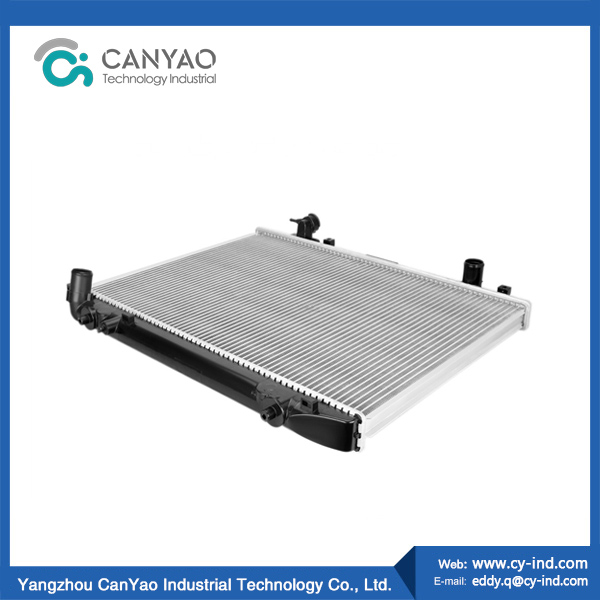Information about car intercoolers
2023-10-18
A car intercooler, also known as a charge air cooler, is a component commonly found in turbocharged and supercharged vehicles. Its primary function is to cool the compressed air that is fed into the engine's intake manifold, increasing the density of the air and improving engine performance. Here's some important information about car intercoolers:
Function: The main purpose of an intercooler is to reduce the temperature of the compressed air coming from the turbocharger or supercharger before it enters the engine's combustion chambers. When the air is compressed, it gets heated, and hot air is less dense, reducing engine efficiency. The intercooler cools down the compressed air, increasing its density and allowing more oxygen to be present for combustion. This results in improved engine power, torque, and overall performance.
Construction: Intercoolers are typically constructed with an aluminum core or a combination of aluminum and plastic. Aluminum is preferred for its excellent heat transfer properties. The intercooler consists of a series of tubes or channels through which the compressed air flows. These tubes are surrounded by fins that increase the surface area for effective heat dissipation. The intercooler is usually located in the front of the vehicle, where it can receive sufficient airflow.
Types of Intercoolers: There are two main types of intercoolers:
1. Air-to-Air Intercoolers: This type of intercooler uses ambient air to cool the compressed intake air. The hot compressed air flows through the intercooler's tubes, and the external airflow, usually from the vehicle's front grille, passes over the fins, dissipating the heat.
2. Air-to-Water Intercoolers: In this type, the heat from the compressed intake air is transferred to a liquid coolant circulating through the intercooler. The heated coolant is then cooled by a separate heat exchanger, such as a radiator or a dedicated intercooler water cooler, before returning to the intercooler for the cooling process to repeat.
Sizing and Performance: The size of an intercooler plays a significant role in its cooling efficiency. A larger intercooler generally provides more surface area for heat dissipation and allows for better cooling. However, the size and design of the intercooler should be optimized for the specific vehicle and its power requirements to achieve optimal performance.
Upgrades and Modifications: In high-performance applications, car enthusiasts may choose to upgrade their intercoolers for improved cooling efficiency. This could involve installing larger intercoolers, upgrading to more efficient designs, or using aftermarket intercooler kits specifically designed for increased performance.
Regular Maintenance: Intercoolers generally require minimal maintenance. It's important to periodically inspect the intercooler for any damage, leaks, or obstructions that could hinder its cooling efficiency. Cleaning the intercooler fins and ensuring proper airflow through the front grille can also help maintain optimal performance.
When considering modifications or upgrades to the intercooler, it's recommended to consult with experienced professionals or specialized automotive shops that have expertise in the specific vehicle and its performance needs. They can provide guidance on selecting the right intercooler and ensure proper installation for optimal results.



